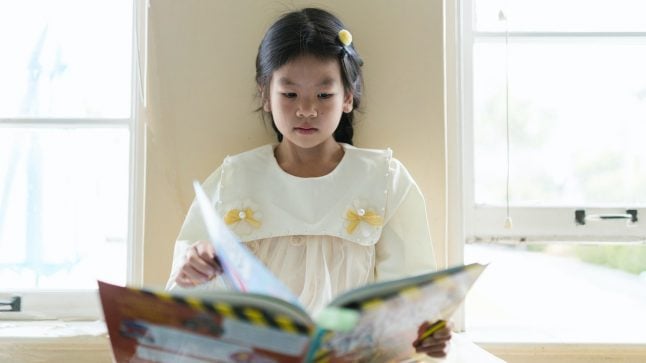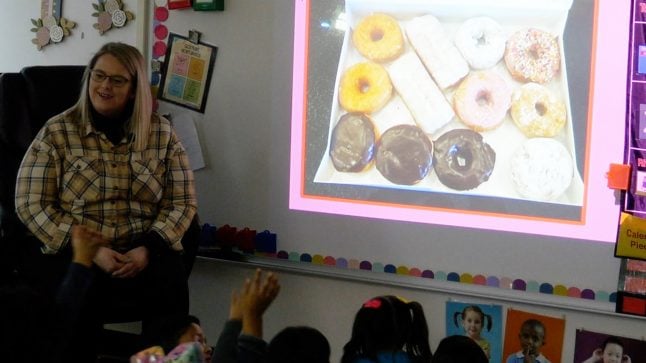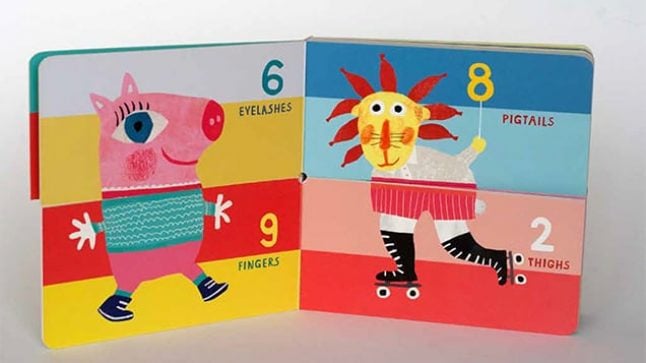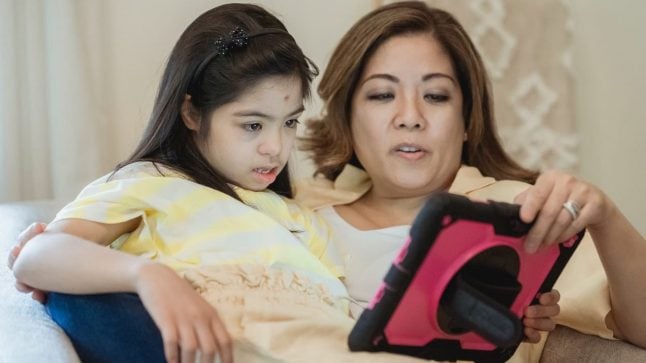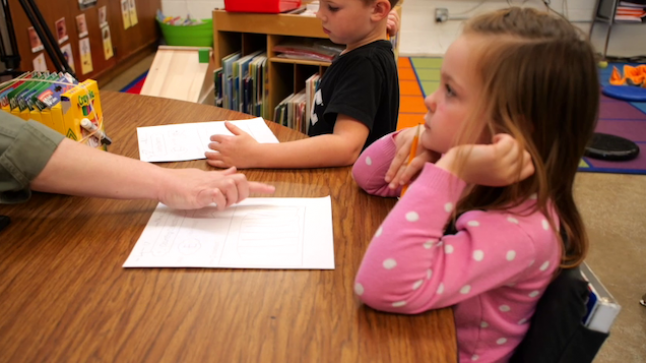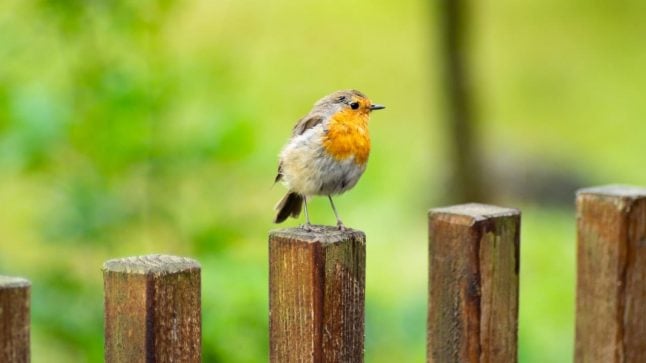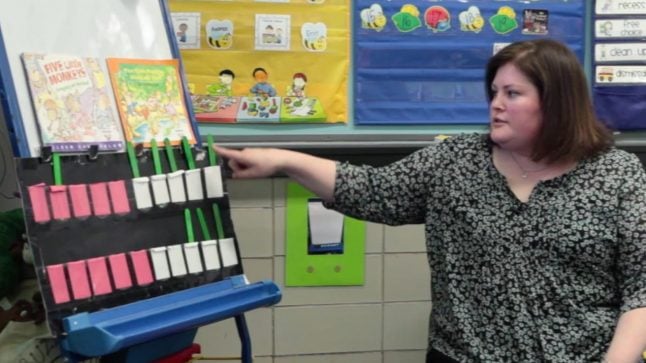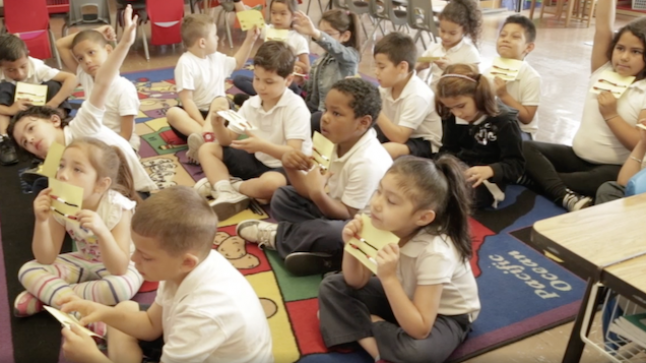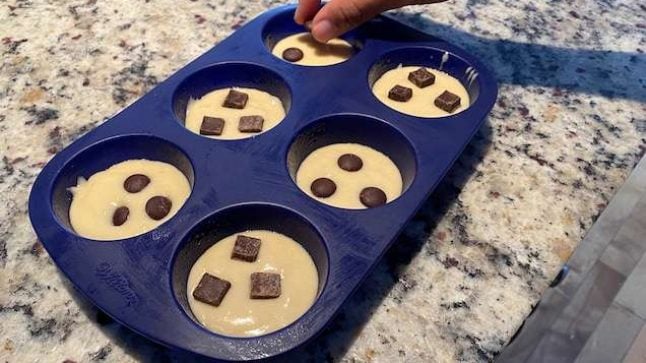1st Grade Math
Series: Racial Justice
The Power of Books to Support Racial Justice-Centered Math Teaching and Learning
August 10, 2023
From a racial justice centered perspective, books can be powerful tools to engage children in mathematics learning. The worlds, stories, adventures, characters, and possibilities that are made available through books – explicitly math focused and…
- Age/Grade Level: Pre-K, Kindergarten, 1st Grade, 2nd Grade, 3rd Grade
Series: Focus on the Lesson May 10, 2023
Photo Chat about Quantities Puts the Focus on Units
In this video, preschoolers share the quantities they see when looking at a photo of a box of doughnuts. There are many ways to answer the question, how many of what?, depending on the unit.
- Topic: Number Sense, Data Analysis
- Age/Grade Level: Pre-K, Kindergarten, 1st Grade
Series: Ideas at Work February 22, 2023
What is a Number Path and How Does It Build Number Relationships?
Many of children’s favorite board games follow a path to a goal. Exploring a number path with young children also leads to a goal that is critical for early mathematics: understanding number relationships. What is…
- Topic: Number Sense, Counting
- Age/Grade Level: Pre-K, Kindergarten, 1st Grade
- Tags Games
Series: Book Ideas September 28, 2022
4 Playful Counting Books That Bring Numbers to Life
Counting books that offer children opportunities to participate bring play into math learning. These books engage children physically, cognitively, and emotionally—making them favorites that children will ask to read again and again.
- Topic: Number Sense
- Age/Grade Level: Pre-K, Kindergarten, 1st Grade
- Tags Family Math
Series: Ideas at Work June 6, 2022
How to Use Digital Photos to Build a Mathematical Language Routine for Kids
It turns out that mathematical thinking is developed in conversation with others; asking students “how do you know that?” will reveal a child’s mathematical reasoning skills. The ability to explain one’s thinking is a cognitive…
- Topic: Sets, Number Sense
- Age/Grade Level: Pre-K, Kindergarten, 1st Grade, 2nd Grade, 3rd Grade
- Tags English Language Learner, Number Talks
Series: Focus on the Lesson November 27, 2021
Counting a Collection of 101 – How Did You Count Them?
Counting Collections is an activity rooted in sense-making and joy. It invites students to count a collection of objects, talk to a partner about how they counted and then draw/represent their collection on paper. In…
- Topic: Number Sense, Counting
- Age/Grade Level: Pre-K, Kindergarten, 1st Grade
Series: Book Ideas May 5, 2021
Early Childhood Data Collection Activities Are for the Birds
Children are naturally interested in birds, so springtime is the perfect opportunity for early childhood data collection activities. Here are some favorites, along with book recommendations.
- Topic: Data Analysis
- Age/Grade Level: Pre-K, Kindergarten, 1st Grade
- Tags Animals, Family Math, Birds, Kevin Henkes, Asia Citro, Susan Edwards Richmond
Series: Focus on the Lesson April 13, 2021
Rekenrek Chart for Voting in the Classroom
Looking for new rekenrek activity ideas? Try voting with a rekenrek chart. In this video, we see a rekenrek chart used to solve a dilemma common to early childhood classrooms: choosing between two favorite books…
- Topic: Number Sense, Data Analysis
- Age/Grade Level: Pre-K, Kindergarten, 1st Grade
- Tags Subitizing, Rekenrek
Series: Focus on the Lesson March 17, 2021
Making the Number Ten on a Rekenrek
A good sense of the number ten is critical for building young children’s reasoning strategies. Here we see kindergarteners making the number ten on a rekenrek, a tool with red and white beads in groups…
- Topic: Number Sense
- Age/Grade Level: Kindergarten, 1st Grade
- Tags Subitizing, Rekenrek
Series: Ideas at Work January 26, 2021
3 Ways to See Mathematical Structure in Everyday Kitchen Math
Cooking with kids is a natural way to do math together. But we're not talking about turning meal preparation into a formal math lesson. Cooking together presents an opportunity that is more about noticing and…
- Topic: Pattern, Measurement
- Age/Grade Level: Pre-K, Kindergarten, 1st Grade, 2nd Grade, 3rd Grade
- Tags Family Math
Do the math.
Free videos.
Free newsletter packed with ideas.
Free professional learning modules.
